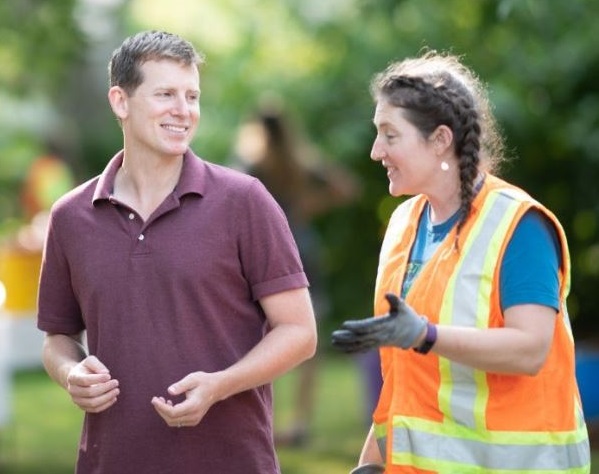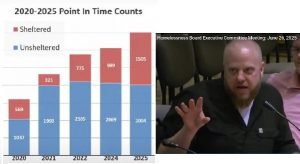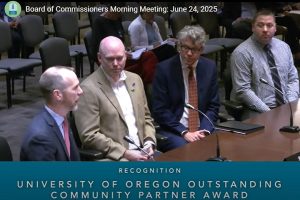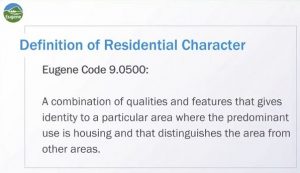Applying a utility model to garbage collection serves the whole community
3 min read
by Marty Wilde
Solving the complex problem of homelessness will require us to see beyond the surface. When we see someone living on the street, the difference between reacting with sympathy and reacting with anger can boil down to whether or not we see them as a neighbor. As with any neighbor, seeing the place they live surrounded by trash makes us less sympathetic. I don’t have the perfect answer for housing the unhoused, but one way to get closer to that answer is to address the garbage problem.
The Garbage Problem. Modern life generates a lot of garbage. Oregonians generate an average of 2,800 pounds of garbage per person, per year. As a legislator, I’ve worked to reduce litter from plastic bags, straws, and other single-use items by limiting some of the worst kinds and by supporting recycling for the remainder. Unfortunately, we have not yet found a practical way to eliminate all garbage.
The unhoused have fewer options to avoid single-use items or to dispose of any other trash appropriately. We do not provide public trashcans in the places where unsheltered neighbors live. To state the obvious, they also can’t afford private trash collection. The distance from their camping sites to easy places to dispose of trash results in its accumulation nearby, understandably complicating our feelings. Who wants to live in or near a litter-strewn neighborhood?
A Solution? Garbage collection falls somewhere between a tax-supported public service and a free market, buy-it-if-you-want-it service. In our cities, the usual solution is that the city council grants a license to one or more collection companies with the requirement that the companies cap their collection fees and profits. This business licensing approach works fine for the housed, but it is missing a key element of economic accommodation that’s in the model we use for electricity, water, and sewage.
For utilities, we provide programs like low-income rate assistance, to make sure that the service is available to all of us.
Despite garbage being an unavoidable aspect of modern life, we don’t extend this utility model to garbage collection. Instead, we fund city public works or a contractor to do clean ups irregularly and inefficiently through general city revenues, taking municipal funds away from fire, police, parks, and other city services. This reactive, ad hoc model imposes significant costs. Consider that our current city contract requires expensive hazardous waste clean-up for all trash produced by the unhoused, because they have no way of segregating their waste to avoid toxic contamination.
We can move to a more proactive approach to garbage collection at a reasonable cost. Of the roughly 172,000 people living in Eugene, about 2,000 are unsheltered. If we assume that the cost of ordinary garbage service for them would be the same as for the rest of us, then an increase of about 1% in fees – 27 cents each month – would cover the cost.
Even if the cost is twice that, which is possible, given the contents of the trash, it would still add less than $7 per year to the average trash bill to provide dumpsters and recycling carts in the public places where our unhoused neighbors live.
While the unhoused cannot pay for this service, it does not mean they should not bear some responsibility. If we provide convenient trash cans and collection, we can reasonably expect people to use them. Littering is already a violation of the law, but if we provide an alternative—the alternative that housed neighbors employ—it becomes an avoidable and less frequent one. Existing laws will hold us all equally accountable.
Providing garbage collection will not solve our homelessness problem. Its roots are varied and deep, including an inadequate mental health system, failure to construct enough low-income housing over many decades, and a resource-starved educational system with weak connections to workforce needs. But, if we do not yet have a perfect view of the solutions to these problems, we can at least give ourselves a clearer view by picking up the garbage.
Contact Marty Wilde by email: wildefororegon@gmail.com





